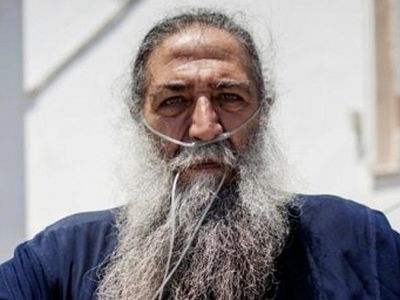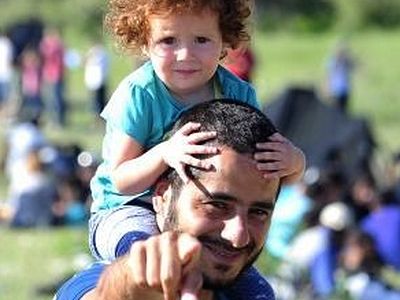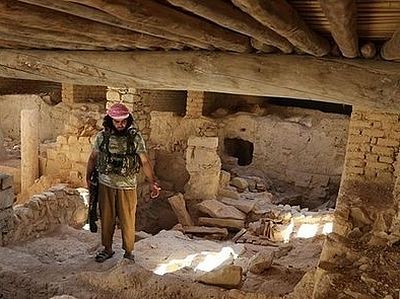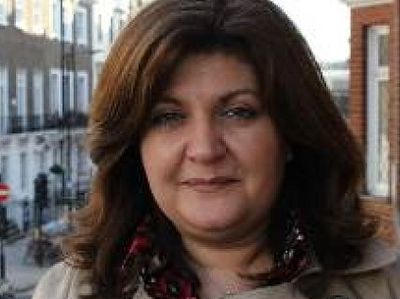The arrival of thousands of refugees, migrants and settlers from Africa and Asia to “the Old World” is already being interpreted by many Europeans as a catastrophe, a curse, and a real challenge not only to the culture, economy, and the Christian faith of the continent (which is still alive, though is becoming very weak), but, therefore, to the very existence of the continent and its native inhabitants. Judging by the comments in the social networks and media reports, an undisguised panic, provoked by the new “Great migration of peoples” has begun. Beyond a doubt, there is a cause for fear and concern. But fear is alien to Christianity. It was not in vain that Christ said these words many times to His disciples: “Do not be afraid!” How not to be afraid, how to remain Christians in these disturbing, alarming times? What should Europe do not to be afraid? Igumen Daniel (Irbits), Abbot of the St. George’s Monastery in Götschendorf (Brandenburg state, Germany), who is in charge of relations between the Berlin Diocese of the Russian Orthodox Church with the German government and the public and is a member of the integration committee at the Federal Office of the Chancellor of Germany, answers these questions in his interview with Pravoslavie.ru.
—Father Daniel, as a person living in Germany do you consider the current influx of refugees to this country and to the whole of Europe a big problem? Or maybe even a danger? If yes, then what, in your view, is this jeopardy connected with and what is causing it?
—It may become a danger, provided that the refugee policy is wrongly pursued. After all, among those who make decisions there are many Christians not in name only, but also true believing Christians. And many people act according to the Christian beliefs, frankly thinking that, whenever aid is needed to people in extremely difficult circumstances of life, it should necessarily be rendered. Christ said, “Give food to the hungry, give drink to the thirsty, give shelter to strangers.” Or are these words of Christ no longer relevant to us? And how to do it competently depends on the professionalism of those who are in charge of this; so to say, ex officio.
The first step that should be taken is the registration of each individual arriving on the territory of Europe; this is important in order to prevent incidents like the one when a crowd of illegal immigrants got to Germany from Hungary.
—Do you believe that Germany will cope with this difficulty—financially, economically, and psychologically?
—I believe Germany has enough wisdom and strength to cope with this issue. With God’s help —since the Lord is always on the side of those who show mercy and give aid where it is needed.
—How do German people regard this: is the number of refugees, immigrants who are seeking to settle here, a critical one, exceeding the bounds of reason?
—It is not easy to answer this question right now. There are both positive and negative comments on this issue in the internet. I think we will see it with time. But, first and foremost, all depends on the desire of the migrants to integrate into our country’s life. To integrate honestly—not just declaratively, solely for the “cherished” benefits and comfort.
—Aren’t Germans afraid that they may literally “melt” into the total mass of displaced people, thus losing their own identity, which originally had strong Christian roots?
—Those who preserve the traditions of their own culture have nothing to be afraid of. On the contrary, a fine opportunity to show these traditions from their better side and to become an example for many nations arises before them.
—What is the situation with Christianity in today’s Germany, in your judgment? Some people are now raising an alarm, saying that we are witnessing the decline of Christianity in Europe. Is such a phenomenon really taking place in our days?
—Christianity is currently going through a very interesting period: in my view, there is a transition from an outward observance of the tradition and ritual to a deeper understanding of their inward nature and implementation of this in all the aspects of life. Believe me, there are no fewer genuine Christians in Germany than in other countries with the Christian tradition.
—Against the background of the overwhelming majority of Muslim refugees, do German residents make any distinctions between them (Muslims) and, say, Christians from Syria, or, “the refugees are all alike”?
—I can paraphrase the words of Jesus: everyone is treated by the authorities the same way, and with maximum mercy, regardless of their ethnic and religious background. Among the newcomers there are not only Muslims, but also Christians, including Orthodox Christians.
—In your opinion, is the Orthodox Church in Germany capable of contributing to the improvement of the present situation in some way?
—Yes, we will do all we can. For example, early in September I had a meeting with a member of Bundestag Jens Köppen at my monastery, where we also discussed the issues surrounding the Christian refugees from Syria.
At the present time, I cannot publicly share the details of our conversation, but I can say that we are willing to help them at any moment.
I am firmly convinced: if only we remain Christians, we will be able to save Europe. If we succeed in this, then even the influx of migrants may become a kind of a mission. If we can manage…








